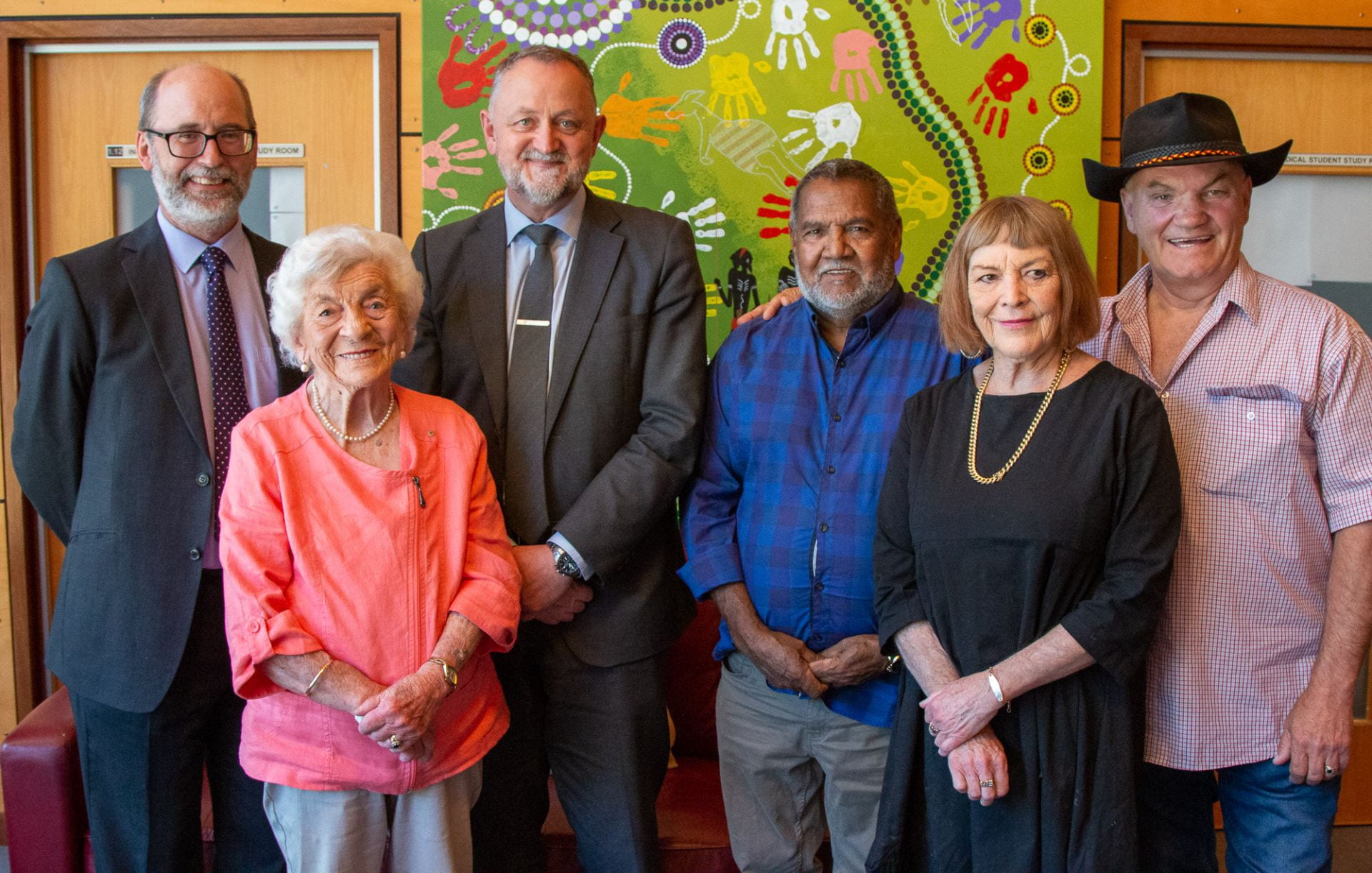[Lecture delivered 4 December]
For 10 million people worldwide, access to learning would not have been possible without an adult literacy learning model that’s now transforming Aboriginal communities in western NSW.
The Literacy for Life Foundation utilises an adult education model developed in Cuba and rolled out in 30 countries, to combat low adult literacy rates in Aboriginal communities where English is not the main language and traditional schooling hasn’t widely worked.
Speaking at the first public lecture in honour of UNE lecturer Neville Crew, a passionate advocate for lifelong learning and education, Literacy for Life’s executive director, Professor Jack Beetson, said improving literacy skills is the necessary first step to improve lives, before it’s possible to get within “a bull’s roar” of ‘closing the gap’.
“If you can’t read or write, you don’t even know there is a gap,” Professor Beetson says.
Without knowing how to read or write, Professor Beetson says it’s impossible for people to understand the inequality that exists, and to fully participate in society. It’s an issue that needs to be owned by the wider community.
“Literacy is never the fault of the people that have low literacy. It’s our fault, our challenge,” he says.
Over seven years, the Literacy for Life campaign has run across 11 communities including Brewarrina, Wilcannia, Toomelah and Walgett to improve life skills and opportunity.
The campaign enables individuals to gain literacy skills in just 11 weeks, and has a 66 per cent graduation rate, opening up opportunities far beyond education and employment: it encourages “active citizenship”.
“People engage less with the Indigenous justice system. They have a greater chance of getting a licence. They get on [community] boards.
“It helps people make better decisions; I’m convinced we’re doing that,” Professor Beetson said.
It’s also about empowerment.
“Participants say ‘we learn to read and write, but even better than that, we learn to talk for ourselves’.”
The Literacy for Life model works, Professor Beetson says, because it’s community-led and community-backed. The Literacy for Life Foundation only works with communities they’re invited into. And they’ve always been invited back.
“If they [the communities] don’t own it, it doesn’t work. They have to lead the way,” he says.
“It’s not about getting a bunch of individuals to read and write, it’s about getting the community to value learning.
“You value it through experience and through your parents and your grandparents.
“When we went back to Wilcannia, people were talking about reading to their kids. [Valuing learning] becomes self-perpetuating.”
Professor Beetson also urged the academic community in general to ensure all research collaborations with Indigenous partners be conducted carefully, ethically and meaningfully, and to ensure research benefits flow back to the research participants.
UNE has partnered with the Literacy for Life Foundation since 2012 to measure and evaluate the impact of the literacy campaigns.
The recording of the Neville Crew Memorial Public Lecture is available here.
Image: Dean of HASSE Professor Michael Wilmore, Ms Thelma McCarthy and Ms Annette McCarthy representing the Crew family, Provost & Deputy Vice-Chancellor Professor Todd Walker, Elder in Residence Mr Colin Ahoy and adjunct Professor Jack Beetson at the inaugural Neville Crew Memorial Lecture at the University of New England.



Recent Comments